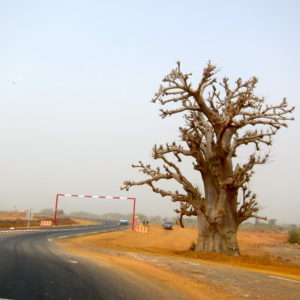“The past is never dead. It’s not even past.”
-William Faulkner
I get asked about my social circle in London—the city where I currently house my belongings. It’s always a strange question for me—to parse the time and space boundaries of the people I hold in high regard. I often don’t think of them in terms of such distinct geography.
But there is this other bit about how time manages to slip through our fingers. As you’re pulled into other things, it’s easy for memories take on a sepia tone. It can leave you wondering if everything that came before has crumbled away after so much exposure to the temporal elements.
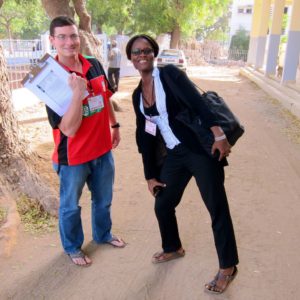 February has been special for reasons that have helped to clear away the overgrowth that comes with time. The first came in an unexpected message from a person I met during the 2012 presidential elections in Senegal. Local and American volunteers (among others) were traveling the countryside to observe the conduct of two rounds of presidential elections. When I met Safiétou, I instantly recognized her as one of My People: I appreciated her perspective, humor, razor-sharp wit and intelligence. One day in Round One of the elections, a group of us observers were chatting around a dinner table in Thiès when she remarked to me off-handedly, “I think you and I are going to be friends.”
February has been special for reasons that have helped to clear away the overgrowth that comes with time. The first came in an unexpected message from a person I met during the 2012 presidential elections in Senegal. Local and American volunteers (among others) were traveling the countryside to observe the conduct of two rounds of presidential elections. When I met Safiétou, I instantly recognized her as one of My People: I appreciated her perspective, humor, razor-sharp wit and intelligence. One day in Round One of the elections, a group of us observers were chatting around a dinner table in Thiès when she remarked to me off-handedly, “I think you and I are going to be friends.”
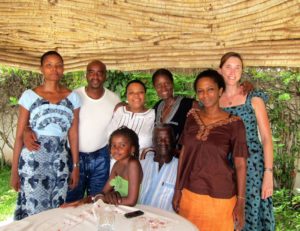 From that point on, until I left Senegal, Safi did become a true friend who opened up a whole new world to me. I was welcomed to her family’s Korité table, she kept me out after hours to dance in the clubs of Dakar (something I never do anywhere), I would join her family in escaping to the coast during the hot Senegal summer—all of it just felt simultaneously mundane yet special. That was six years ago. I have not seen Safi since.
From that point on, until I left Senegal, Safi did become a true friend who opened up a whole new world to me. I was welcomed to her family’s Korité table, she kept me out after hours to dance in the clubs of Dakar (something I never do anywhere), I would join her family in escaping to the coast during the hot Senegal summer—all of it just felt simultaneously mundane yet special. That was six years ago. I have not seen Safi since.
But then she materialized in London on a last-minute business trip. She contacted me just a few days before, asked if I would be in town or away on a trip? As it turned out, we would intersect for about 12 hours.
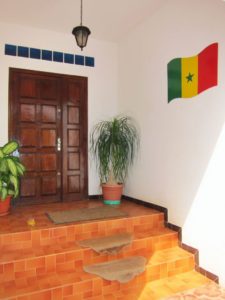 If anyone knows anything about the Senegalese people, then they are familiar with the term “teranga”. The Senegalese have this façon de faire in their veins: the sense of helping one another, politesse, hospitality—and above all just being very open people. Safi and her family are teranga exemplified. So while I missed my friend dearly after so many years, I saw her trip to London as a small chance to reflect back a bit of what she gave to me while I was in Dakar.
If anyone knows anything about the Senegalese people, then they are familiar with the term “teranga”. The Senegalese have this façon de faire in their veins: the sense of helping one another, politesse, hospitality—and above all just being very open people. Safi and her family are teranga exemplified. So while I missed my friend dearly after so many years, I saw her trip to London as a small chance to reflect back a bit of what she gave to me while I was in Dakar.
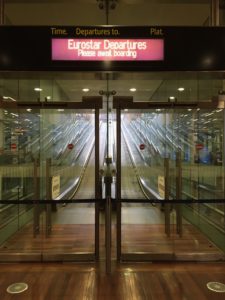 We made plans to meet as soon as she arrived off the Eurostar. While she is as much of a pro traveler as most of my friends, she didn’t know London super well. I raced down to Saint Pancras Station from work, extra Oyster card in hand—excited to see her but at the same time a little apprehensive about how much my French had atrophied since living in French-speaking West Africa. Also, I wondered if all of the amazing adventures that we’d experienced were still there. Was the friendship truly special?
We made plans to meet as soon as she arrived off the Eurostar. While she is as much of a pro traveler as most of my friends, she didn’t know London super well. I raced down to Saint Pancras Station from work, extra Oyster card in hand—excited to see her but at the same time a little apprehensive about how much my French had atrophied since living in French-speaking West Africa. Also, I wondered if all of the amazing adventures that we’d experienced were still there. Was the friendship truly special?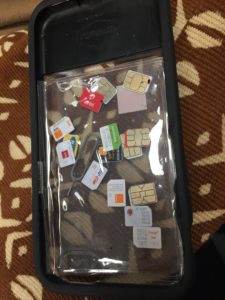 I got to the station late and came upon Safi as she purchased a UK SIM card (she already had at least a dozen in her possession from other countries). Our reunion was pure smiles, and we picked up as though we had just seen each other hours before. The only difference now was that instead of light and airy cotton clothes I wore a puffy pink jacket and she a distinctive camel jacket that was a creation of her fashion label.
I got to the station late and came upon Safi as she purchased a UK SIM card (she already had at least a dozen in her possession from other countries). Our reunion was pure smiles, and we picked up as though we had just seen each other hours before. The only difference now was that instead of light and airy cotton clothes I wore a puffy pink jacket and she a distinctive camel jacket that was a creation of her fashion label.
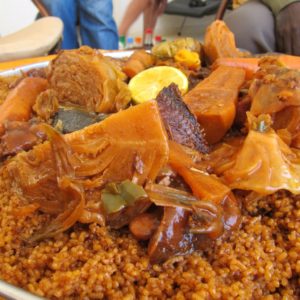 We took the tube to get closer to her afternoon appointment as we talked about things that I don’t even remember now. We found a Turkish restaurant and devoted time to good food and conversation (note: the above photo isn’t Turkish food, but of course, thiéboudienne…and it was delicious). It was freezing cold outside with no sunglasses to guard against the Dakar sun, but all the same it was like a bit of Senegal was brought to east London.
We took the tube to get closer to her afternoon appointment as we talked about things that I don’t even remember now. We found a Turkish restaurant and devoted time to good food and conversation (note: the above photo isn’t Turkish food, but of course, thiéboudienne…and it was delicious). It was freezing cold outside with no sunglasses to guard against the Dakar sun, but all the same it was like a bit of Senegal was brought to east London.
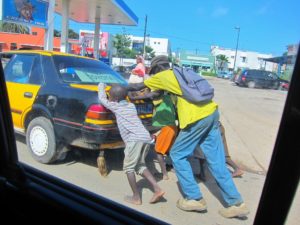 I wound up going with Safi all the way to her appointment and then meeting her friend-of-a-friend contact who would be putting her up for the weekend. At some stage while we were still waiting, Safi said, “Megan, you can go—you don’t have to wait.” I looked at my long-lost friend as if she had two heads. I thought about all of the times in Senegal—and in other places in West Africa—where no one would ever let you go someplace alone. Not because it was unsafe—just because that’s not what people do. “On t’accompage”—we’ll go with you.
I wound up going with Safi all the way to her appointment and then meeting her friend-of-a-friend contact who would be putting her up for the weekend. At some stage while we were still waiting, Safi said, “Megan, you can go—you don’t have to wait.” I looked at my long-lost friend as if she had two heads. I thought about all of the times in Senegal—and in other places in West Africa—where no one would ever let you go someplace alone. Not because it was unsafe—just because that’s not what people do. “On t’accompage”—we’ll go with you.
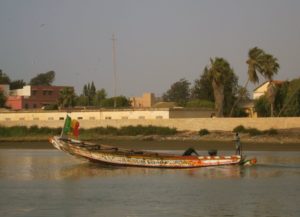 It was a small thing but I waited for Safi’s contact to show up and collect her. I wanted to ensure that she was well on her way to her next wicket while in London. Of course, Safi has a perfect English and the wherewithal to figure it out herself, but I wanted to do as much as I could for her in the brief time that she was in my adopted town.
It was a small thing but I waited for Safi’s contact to show up and collect her. I wanted to ensure that she was well on her way to her next wicket while in London. Of course, Safi has a perfect English and the wherewithal to figure it out herself, but I wanted to do as much as I could for her in the brief time that she was in my adopted town.
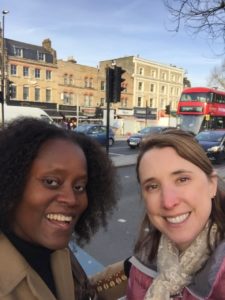 So I can’t really say that I have loads of friends in London. The truth is that they are spread out far and wide—and for some it has been far too long since we’ve seen each other. But all the same, I never find myself lonely living in London. I think I feel this way because I have so many true friends still in reach. And eventually we wind up finding each other again.
So I can’t really say that I have loads of friends in London. The truth is that they are spread out far and wide—and for some it has been far too long since we’ve seen each other. But all the same, I never find myself lonely living in London. I think I feel this way because I have so many true friends still in reach. And eventually we wind up finding each other again.
 I need My People. They keep me calibrated and help me to remember that my memories and aspirations are valid. They have the unique power to sweep away the mossy overgrowth that has serves no purpose but to foster doubt.
I need My People. They keep me calibrated and help me to remember that my memories and aspirations are valid. They have the unique power to sweep away the mossy overgrowth that has serves no purpose but to foster doubt.
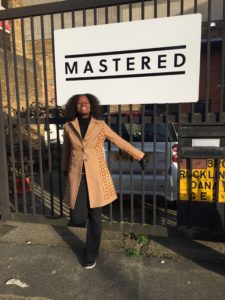 This story has grown too long but I’ve been reflecting on this subject ever since I hugged Safi goodbye on a Hammersmith & City Line train last Friday afternoon. Maybe it was a product of the dark London winter, but until I had seen Safi I had been feeling decidedly uninspired about things. The job, the daily routine of going to bed and getting up early. The non-negotiable British weather. After I left Safi it felt as my internal dimmer switch had been located, and my world view had been brought up to a more appropriate luminescence.
This story has grown too long but I’ve been reflecting on this subject ever since I hugged Safi goodbye on a Hammersmith & City Line train last Friday afternoon. Maybe it was a product of the dark London winter, but until I had seen Safi I had been feeling decidedly uninspired about things. The job, the daily routine of going to bed and getting up early. The non-negotiable British weather. After I left Safi it felt as my internal dimmer switch had been located, and my world view had been brought up to a more appropriate luminescence.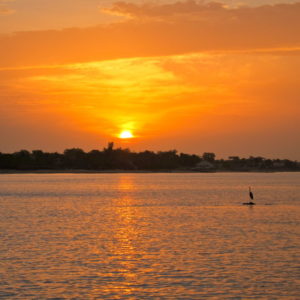 It might have been six years since we had seen each other, but je vous jure it will not be another six until we see each other again. Dakar and my people living everywhere are calling, and we really do need each other.
It might have been six years since we had seen each other, but je vous jure it will not be another six until we see each other again. Dakar and my people living everywhere are calling, and we really do need each other.
